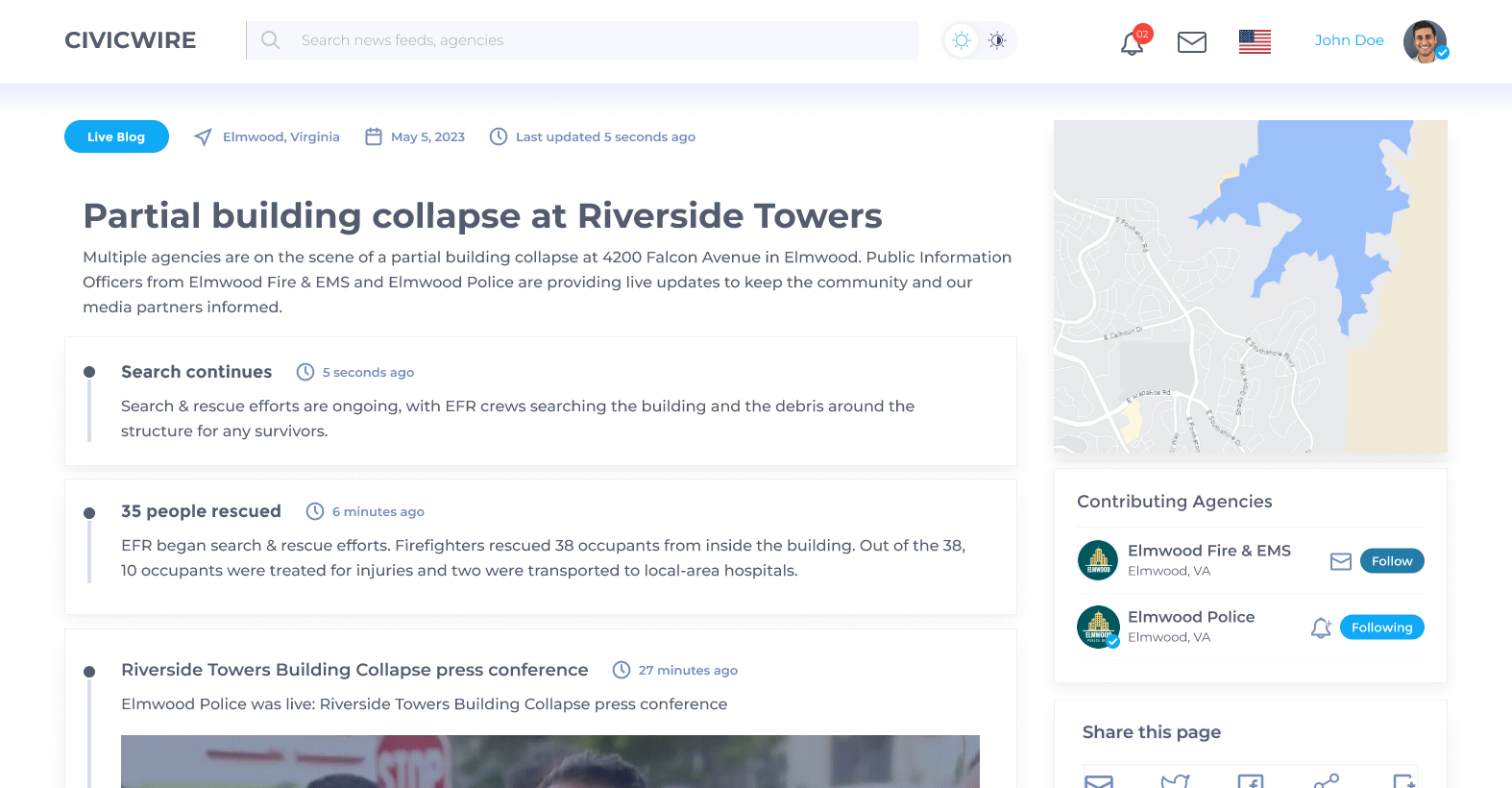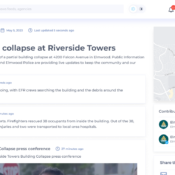
Newsgathering reinvented: Why we’re launching CivicWire
Trust in journalism is near a record low — in the United States, only 34% of Americans say they have at least a fair amount of trust and confidence in journalists to report news “fully, accurately and fairly.”
Journalism and news consumption have gone through a rapid series of changes during the past 15 years. Journalism is no longer limited to large media corporations – today, anyone with an internet connection can publish news.
Those changes have allowed independent journalists to reach a wide audience and has given voice to marginalized communities. But it also had negative effects — misinformation, sensationalism and state actors have real-life consequences, and the rise of AI could amplify those effects.
And while we have access to more information than ever before, news consumption is more fragmented than ever. Social media platforms thrive on negativity and algorithms control much of what we see and read.
My career in journalism dates back to early 2007, when Twitter was still a new website. Along with a colleague, I created what was simply known as BreakingNews, one of the first places on the web for real-time news updates. At the start of 2010, BreakingNews was one of the top 50 Twitter accounts and was acquired by NBC News (which eventually shut it down).
Much has been said and written about journalism and news consumption, but a third aspect is rarely mentioned: news distribution. Where does the news you read come from? How do journalists receive their information? Are they just repeating a press release or do they have original reporting?
The fact is, many of the day-to-day articles you read are largely based on content provided by officials. This is particularly true for crime, accidents and breaking news in general, and especially so in the early hours when only few official details are being released.
I have covered thousands of stories since 2007 – from local news to international disasters – and have personally experienced the struggles in obtaining public information. Let me emphasize that: public information. Yet it’s not always as publicly available as it should (and can) be.
This public information is distributed in a number of ways: Social media, email distribution lists for journalists, official websites, press conferences, media-only chat groups, one-on-one contact with journalists who reach out to them, and more. Some use a mix of those – releasing some information in one place, and more information somewhere else.
It’s time for greater transparency. That’s why we’re creating CivicWire. Public information should be public. Anyone who has doubts about a news report should have access to the source material, in one place where it’s easy to find. This will increase trust in journalism and makes it easier to hold officials accountable for incomplete or inaccurate information.
During the past months, I have heard from both journalists and officials who welcome the idea of a single platform to provide easy and real-time access to public information on a global scale, from verified sources. CivicWire will also offer cross-posting features, allowing agencies to continue posting to social media at the same time.
For citizens, CivicWire will provide easy access to public information about their communities, and allows anyone to fact-check information and access raw, unedited footage such as press conferences and body-cam videos. This is especially important in times of crisis when quick access to reliable information can save lives and stop the spread of misinformation.
CivicWire will also be a valuable tool for journalists, especially at a time when news outlets are shutting down or cutting jobs. A journalist should not have to spend 30 minutes (or more!) simply to get a copy of public information which was already emailed to a small group of reporters. This valuable time can be used for original reporting.
It will also provide a great benefit for public safety agencies. Many towns and cities across the world have only one spokesperson. Some don’t have a spokesperson at all. CivicWire will provide them with a range of tools —including AI — to help inform their community and journalists.
BNO News was founded by a small group of people with a passion for (breaking) news. A platform such as CivicWire requires trust and transparency, which is why I believe it should be created by journalists, not by the government or a social media company. The platform should be ad-free and focus on serving the public good.
We have already started CivicWire’s development, but we’re not there yet. CivicWire will be a complex platform — a web version, mobile apps, live streaming, AI tools and dozens of other features for both users and agencies. We need your support to make this a reality.
Join our mission today, donate to our campaign – no matter how small – and help spread the word by sharing it on social media. Let’s create a more transparent and accessible future of news consumption. You can also sign up for email updates by clicking here.

